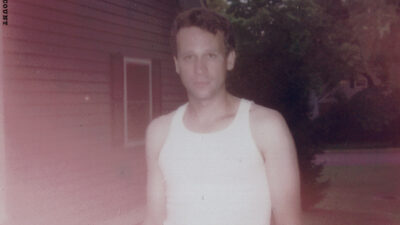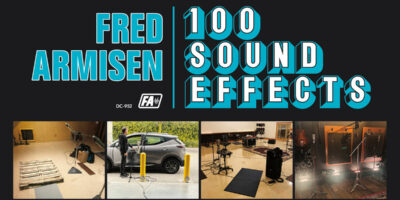Genre: Avant-Prog, Brutal Prog, Jazz-Rock
Favorite Tracks: “Sugar/Tzu,” “Welcome to Hell,” “Still,” “The Race Is About to Begin,” “The Defense,” “27 Questions”
Less than fourteen months have passed between the release of black midi’s CAVALCADE and the release of HELLFIRE, which, when you think about it, is pretty astounding. This isn’t because CAVALCADE is a brilliant, fully realized record positively bursting with ingenuity and technicality that should not be easily followed, let alone matched or exceeded (though it is that). It’s not even because HELLFIRE somehow manages to vault over the proverbial bar that CAVALCADE set so high (though, I’d argue it does so). black midi, over the span from 2019’s SCHLAGENHEIM to 2021’s CAVALCADE, proved that they were a rare modern rock band that looked to grow not only upward, but also outward: from the fuzzy warbling yelps of “She moves with a purpose” over the slow, spacious, and deliberate “bmbmbm” on the former to the slurred abstract tale that spills like hard liquor over “John L’s” dense and blitzing composition of blaring horns and harsh, chugging, angular guitars on the latter, black midi in theory aim to never be the same band twice. The questions then become: how long is drastic reinvention sustainable, and how long must one wait in-between said reinventions? Our answers: at least three albums and fourteen months, respectively.
For the past five years, the Windmill scene (named so for the Windmill venue in Brixton frequented by bands such as black midi, Squid, Dry Cleaning, and Black Country, New Road as they cut their teeth) has perhaps been the best argument for rock music’s stubborn persistence in the present day, with black midi in particular being difficult to pigeonhole. They may be the least “focus tested” band that’s managed to build any sort of majorly notable reputation in 2022, and the stab-in-the-dark assumptions of John Zorn, Beefheart, King Crimson, and The Mars Volta influences one might attribute to the band feel neither appropriate to their early work nor accurately paints a fraction of their auditory canvas. On a cursory listen, black midi might sound unfocused, shifting from idea to idea and back in rapid succession like a chameleon with ADHD. However, the theme of “controlled chaos” has seemed to be a consistent one across albums for Geordie Greep, Cameron Picton, and Morgan Simpson.
“Still,” the track that bookends act one of HELLFIRE, sticks out something fierce precisely due to it being the least fierce song on the album, and it follows the most unhinged arrangements and nightmarish narratives HELLFIRE has to offer. Even though it’s not explicitly country, it’s at minimum country-adjacent, marked by its use of swelling steel guitar and picked acoustics to craft a gentle atmosphere of pastoral romance. There’s a brief disruption towards the midpoint, a few blasts of abrasive noise before it settles back into even deeper tranquility, the sounds of chirping birds leading it out. Perhaps the most disconcerting part of it all is the understanding that this disruption is, in fact, more comforting than the peace it interrupts. It’s as if black midi is making the point that the peace can’t be trusted, that it’s a façade that cannot hold against the brutal chaos that we’ve become accustomed to. That love, the topic of “Still,” is a foreign and awkward concept amidst the ugliness and death that surrounds us each day. There’s a deliberateness to its sequencing among the track list, and it’s an intent that leads down a rabbit hole of seemingly bizarre and disconnected decisions that collapse into each other to form a single absurdist statement on the nature of existence and the eventual lack thereof.
The four songs preceding “Still,” (the title track opener and singles “Sugar/Tzu,” “Eat Men Eat,” and “Welcome to Hell”) might most closely resemble what a fan might expect from black midi after CAVALCADE: each is, appropriately, screamingly mad. “Hellfire” is part hellscape tour introduction, part tone poem, part indicting rant against the breathlessness and endlessness of grotesque atrocity the narrator is subject to. Greep suitably nary allows himself a breath as he verbally sprints over Simpson’s marching beat and through a sea of jerky keys and cascading horns: “There’s always something / An odd twitch, hearing loss, a ringing noise, new flesh, a new bump, a weightlessness / A headache, a sore limb, an itchy gash, a mirage, a tumor, a scare / And when one is fixed, another breaks / When some destroyed, more await.” “Sugar/Tzu” serves as the first solid, fully formed vignette of HELLFIRE, telling the story of a three-foot three dwarf who scurries through the legs of taller folk to murder an obese boxer in the distant future on a date that does not exist, complete with cheeky ring announcer intro. It begins calmly before coming completely unglued with blast beat drumming and syncopated horns at such breakneck speeds it feels as though the band might shatter the sound barrier.
black midi’s use of the tranquility/frenzy dichotomy is wielded throughout HELLFIRE to immense success, and it’s noteworthy here that it’s the leadup and aftermath of the assassination that are characterized by frenzy, while the killing itself is embraced in gentle melody. “Eat Men Eat,” a Flamenco-flavored piece led by Picton’s more traditional vocal styling and grooving bass, concerns a mine captain poisoning his workers so he can pump their stomachs in hopes of making wine with the acid, while “Welcome to Hell,” driven by its punchy lead guitar riff, introduces Tristan Bongo, a private on shore leave whose PTSD is triggered by the sights and sounds of the nightlife, leading to his commander berating and discharging him for being too weak. None of this, whether it be outside the realm of sense or concerningly within, paints a rosy picture of the human condition: murder, sociopathy, exploitation, and abuse are what make up a man. Yet as sadistic as the writing is, much of it is presented as theater. More than ever, there’s a bombastic sheen applied to black midi’s music, a sense that this is Broadway to them. Arrangements lack the claustrophobic quality of earlier recordings: every song is given more space to stretch its arms and say, “Look at me!” The cruelty is surreal and amplified to such an extent that it morphs into an ironic detachment, and then the detachment itself becomes the true tragedy.
Those theatrical sensibilities only come more into focus as the record progresses into its act two. “The Race Is About to Begin” sees Greep complete a transformation of sorts from the marble-mouthed goblin of old into the world’s most deranged lounge singer, as he croons about Bongo’s descent into horse race gambling on a sprawling seven-minute track that serves as HELLFIRE’S technical crown jewel, a heavy jazz odyssey that swings just as hard as it bludgeons. “Dangerous Liaisons,” a tale of a farmhand being coaxed into murder by a Mafioso who was in fact the Devil in disguise, is one of the least sonically violent instances on the album but is permeated by a uniquely sinister aura that helps it stand out. “The Defense” is likely the closest thing to “accessible” the band has ever put to record: it’s pure, lush jazz pop, verse-chorus-verse style. It’s utterly brilliant, with Greep showing off that he can just belt a clever theatrical ballad about pimps and prostitutes and Christianity (“My girls all destined for Hell / Or so says our priest / But find me a Christian / Who spends as much time on their knees” might be the best lyric on the album) should he care to. It all closes with “27 Questions,” the most apparent King Crimson ode on the album, which chronicles the final performance of actor Freddie Frost as he asks the titular twenty-seven (well, twenty plus, close enough) existential questions before he inflates and flies aways while the crowd mocks his suffering in a fitting end to the cartoonishly bleak horror show.
HELLFIRE sees black midi once again walk the tightrope of evolution and revolution, delivering a more cohesive and conceptual project than ever before: more hilarious, hideous, and heartbreaking, more chaotic and colorful, yet more clear and concise. After CAVALCADE, it was difficult to imagine where the band could go next, and HELLFIRE instills a similar sentiment. That said, any concern seems unwarranted at this juncture: three albums in and the band has defied any notion of a creative slump, only growing more inventive as they move upward and outward. Whether their admittedly peculiar and potentially off-putting portrait of mankind’s worst qualities is to any one individual’s tastes feels insignificant: rock music requires bands as unabashed and uncompromising as black midi.















Comments